Former Ojibway chief Nelson seeks Muslim support, announces candidacy for top AFN chief in mosque
On Good Friday in a mosque on the outskirts of Toronto, former Ojibway chief Terry Nelson sat on a chair holding eagle feathers while around him hundreds of Muslim faithful knelt on prayer rugs listening to the Imam preach about the “genocide” committed against Indigenous peoples in North America.
By Jorge Barrera
APTN National news
RICHMOND HILL, Ont.–On Good Friday in a mosque on the outskirts of Toronto, former Ojibway chief Terry Nelson sat on a chair holding eagle feathers while around him hundreds of Muslim faithful knelt on prayer rugs listening to an imam preach about the “genocide” committed against Indigenous peoples in North America.
Nelson sat next to former Dakota chiefs Dennis Pashe and Kenneth Whitecloud, who were there representing current Dakota Chiefs Frank Brown and Orville Smoke, who were attending funerals in their home communities. The three sat together near the front of a spacious room in a building that was once a horse riding school before it was purchased in 1999 and converted to house the Islamic Society of York Region. The 33 acre compound in Richmond Hill, Ont., has a swimming pool, a softball diamond and a children’s playground. It sits down the road from a golf course.
The three were there at the request of one of the mosque’s imams, Zafar Bangash, who invited Nelson following media reports the former chief of Roseau River First Nation was hoping to travel to Tehran. Nelson, Brown and Smoke met with officials in Ottawa’s Iranian embassy in early March to begin preparations for a possible trip to speak to the Iranian parliament.
Several chandeliers hung from the ceiling in the mosque’s main room which resembled a large hotel banquet hall split into two sections by dividers. The floor was blanketed by prayer rugs. In the kitchen, behind a door with a taped sign saying, “staff only,” women prepared chicken biryani, along with a separate channa chickpea dish. Both dishes would later be sold in Styrofoam containers for $5 each, along with naan bread and pop.
Before the Jumah prayer session began, on a table with books for sale, Nelson placed several documents about murdered and missing women, RMCP surveillance of First Nations and a speech he wrote against the looming war against Iran. The available books featured titles like American authored In Defence of Iran, Inspirations for the Day, Hajj in Focus, The Stages of Islamic Revolution, Imam Khomeini: a leader of principle and purpose, and Hizbullah: Party of God.
After the melodious and iconic call to prayer sung by a man in the congregation ended, Imam Bangash stood at the front of the room to deliver a sermon that excoriated Western culture and wove the perceived campaign against Islam with the plight of First Nations people in Canada.
“The native inhabitants of this land, the First Nations as they are referred…looked after the European colonialists when they came and fell ill,” said Bangash. “And what did the European colonialists do in return? Four hundred years ago…there were about 100 million of them on this continent…How has their population gone down, so drastically reduced, that they are left to only a few million people on this land? Because genocide was perpetrated against them.”
According to academic estimates, there were between 57 million to 112 million Indigenous people living on what is now known as North America, Central America and South America, before Europeans like Christopher Columbus made initial contact.
Bangash said the same “people” that committed “genocide” against Indigenous peoples were now “occupying” Muslim lands.
“So what kind of values would people have when they perpetrated genocide against people who were their benefactors, not their enemies? To know a civilization and how it functions and the values they carry, then look at how they treat other people,” said Bangash. “And even now, when these European colonialists and American imperialists have gone to Muslim lands, what have they done in Iraq, Afghanistan, in Palestine and other places? They have killed millions of people in those lands.”
Bangash then linked the duties of the Muslim community to his reason for inviting the three First Nations leaders to the mosque.
“Unless and until we live up to the principles of Islam of enjoining what is good and forbidding what is evil…that honour will not come to us because we do not live up to the expectations of being the compassionate community, the caring community, the giving community, the forgiving community,” said Bangash. “Military power is no power at all. It can kill, but it cannot create. It can cause misery, but it cannot provide the healing touch. We are the people that are taught to provide the healing touch. Here is the opportunity, let’s take it, let’s reach out to people who are less fortunate than ourselves.”
And with that, Bangash asked Nelson to take the microphone and speak to a crowd of at least 700 people, all sitting and kneeling in their stocking feet on prayer rugs. The men occupied the front rows, the women along the back wall and children, sometimes fidgeting, other times listening intently, scattered throughout the assembled faithful, filling the space from wall to wall.
Wearing a ribbon-shirt and an otter fur-lined Ojibway headdress, holding the eagle feathers and cradling his father’s stone ceremonial pipe in his left arm, Nelson made a joke about camels and teepees before saying Muslim and First Nations people shared a common antagonizer.
“You are blessed today because people in the past thought about you and they resisted the Crusaders, people (who) believed that they and only they understood and owned God. Today you are blessed with the Quran,” said Nelson. “We too have met the Crusaders and they have told us and they tried to convince us that God came on a boat in 1492…Today we join with you in prayer and welcome you…to our lands.”
Nelson told the assembled congregation that chiefs from all across Canada would be gathering this July in Toronto to elect a new national chief of the Assembly of First Nations. Nelson said he would again be a candidate and asked for the Muslim community for support.
“I will be a candidate for national chief,” said Nelson, who ran in the last AFN election and garnered only 10 per cent of the chiefs’ vote. “I am going to be asking your help to tell the chiefs that…the Indigenous people of these lands have your support, the support of other nations, who understand what demonization is.”
Only First Nations chiefs can elect the leader of the AFN.
After Nelson finished, the formal prayer began, and, to Quran-rooted liturgy recited in Arabic by Bangash, the whole congregation as one body moved to long-practiced ritual, standing, kneeling and touching foreheads to the ground.
When it was over, and the rugs rolled away, some who listened to Nelson’s speech said they liked what they heard.
“(First Nations people) have no allies. They are marginalized and people…have no idea…whom this land really belongs to and at what costs this land was taken from them,” said Syed Hyder, 55, editor of a monthly Urdu-language magazine. “The Canadian economy is built on natural resources, which they did not bring from Europe, England, Ireland…That means they are still looting it, still taking it. At least they should share. Even today they are not giving any share to the people who belong to this land.”
Some of the youth in the crowd said they saw a parallel between what First Nations people face and the Palestinian situation in the Middle East.
“The chief’s speech was quite inspiring and…it reminded me a lot of what the Palestinians are going through, being kicked off their land, not being able to own any of their own property,” said Afifah Khawaja, 23. “It made me think about the value of justice for all people, not only Muslims…but that includes our native brothers and sisters and any people facing any form of oppression.”
Matt Smith, 22, said he saw similarities between the “oppression” faced by Muslims and First Nations people.
“I think seeing the linkages between oppression help us to fight back against it and to understand oppression better,” said Smith.
Later, in an upstairs room, after Bangash finished interviewing Nelson, Pashe and Whitecloud for his community television program, Muslim Perspectives, which runs every Saturday, the imam said he also saw commonalities in the level of surveillance the Canadian Security
Intelligence Service and the RCMP execute on Muslims and First Nations people.
“We are quite aware that Muslims are looked upon with suspicion. We take for granted that our activities are monitored. We are under surveillance, but we are not doing anything illegal. We do it within the law of Canada,” said Bangash. “In that sense, obviously, we face a similar situation with First Nations people, and indeed other communities here in Canada that, for one reason or another, are viewed with suspicion.”
Bangash said he invited Nelson to speak because he believes Muslims needed to “extend a hand of friendship” to the original inhabitants of the land.
“We are essentially occupying their land, it belongs to them,” he said. “We felt they were experiencing a lot of difficulties, discrimination and dehumanization which is something we as Muslims are also facing.”
Outside the mosque, with the cool April sun splashed across the front parking lot, Nelson said it was time for First Nations people to form links with other countries to find investment and support so they could finally stand on their own without Ottawa’s money.
“We have to reach out to other nations,” said Nelson. “In order to reach out to other countries you have to start somewhere.”
Nelson said he announced his intention to run for national chief at the mosque on Good Friday to gain support from the Islamic community.
“In Toronto, this is where the national election (for the AFN) is going to be, so we are going to get the support from the Islamic associations,” said Nelson. “I think it’s important for us to reach out and the hand of support has been extended.”
Nelson said he wants to sever the AFN’s political functions from the government-funded services it delivers. He believes the national chief should act more as an “ambassador” whose office is funded independently from money that flows from the federal government to Aboriginal organizations.
“I firmly believe we need to get rid of funding that comes from Canada,” said Nelson. “I want to change the system.”
Nelson said he has nothing personal against current AFN National Chief Shawn Atleo, who is expected to run again.
“Atleo is a very nice guy and as far as I am concerned, he has really good energy and things like that,” said Nelson. “I am going to be asking the chiefs, ‘are you satisfied, are you happy with the last three years and if that is the case, then vote for Shawn Atleo.'”
He then left the compound, along with Pashe and Whitecloud, in a white sedan driven by Bangash.




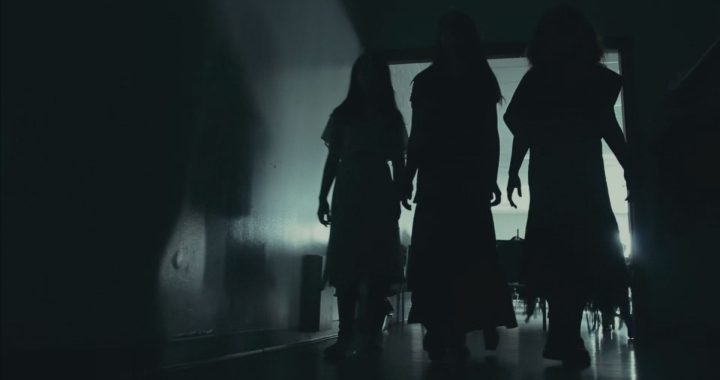

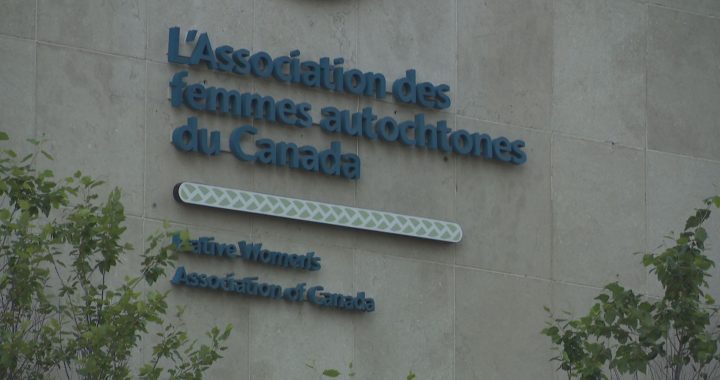
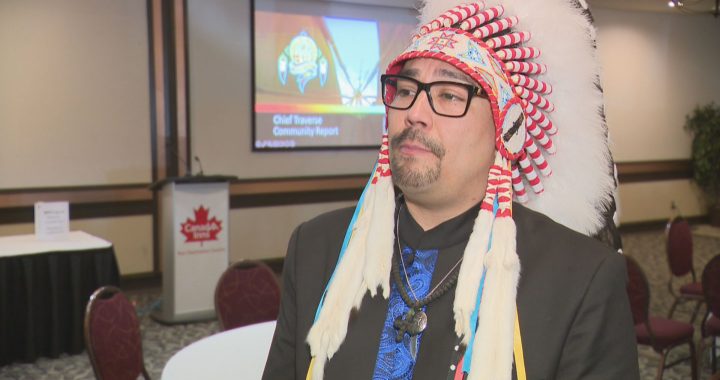
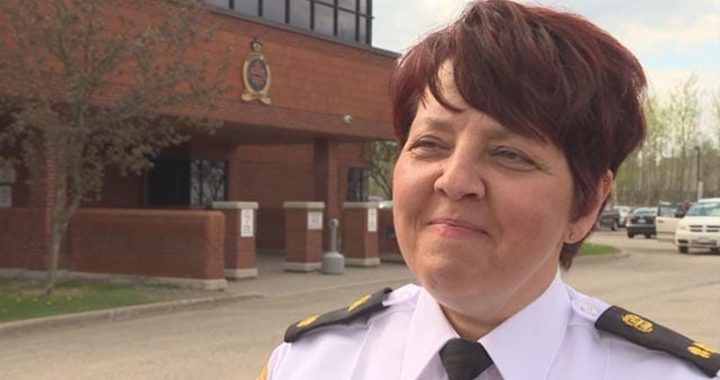
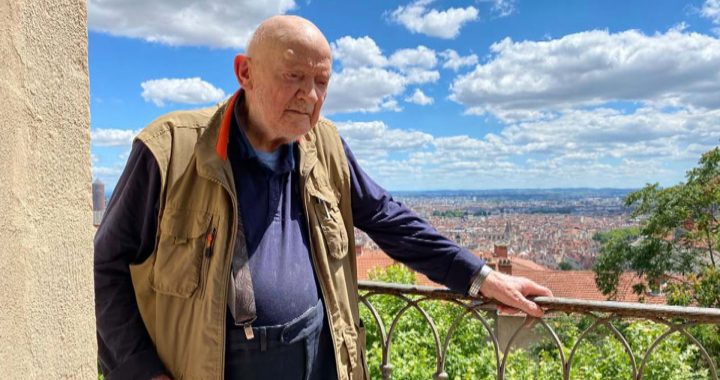
Just another reason to look at the native community with suspicion.
What is this guy doing?
He is whacked out in a big way – no wonder this guy is considered a pariah by many of his own people